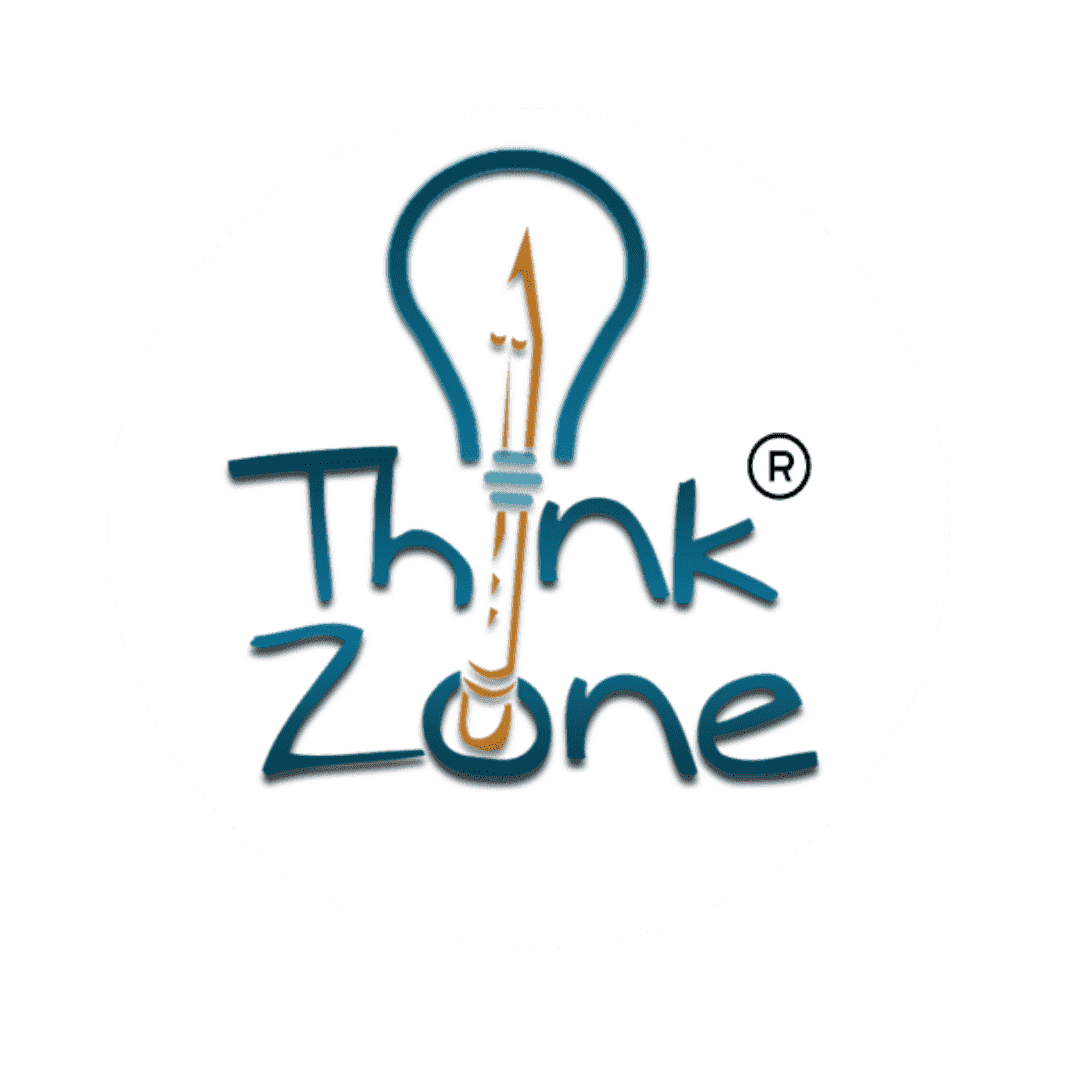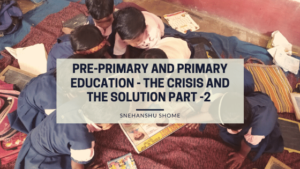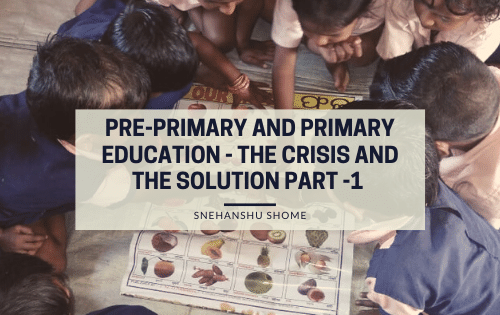Activity Based Learning and Teaching Methodology
The unparalleled rate of cognitive development during a child’s formative years necessitates the maximization of learning outcomes in this phase. Children’s cognitive development is highly contingent on genetics, environment as well as the experiences that they go through. Brain development takes place at a rate that is much more rapid than in any other phase of life. However, there is a lack of attention span, and their minds wander in different directions. This makes it considerably harder to concretely make use of this phase of rapid brain development unless there are ways devised to keep children actively engaged. Long lectures often lead to dullness of the mind, the lapse of concentration, and ultimately lack of learning. The most efficient way to keep children engaged, as is recognized globally, is to make them learn through Activity-based learning.
As the name suggests, Activity Based Learning is a process wherein students take part in various activities that form a part of the lesson, instead of passively listening to it. Through the utilization of various audios, videos, activities, learning resources, etc. lessons are imparted in new and meaningful ways. This approach eliminates any kind of boredom that could possibly arise in the process of learning. At ThinkZone, we believe that Activity Based Learning is the most effective way to impart quality education to young minds and thus equip all our community educators, school teachers, Anganwadi workers with the necessary skill sets to get acquainted with Activity-Based Teaching Methodology.
In alignment with our goals to effectively use Activity-Based methods to teach, our educators are subject to a detailed 4-day Workshop where they are trained regarding the importance of building variety into the teaching and learning process, which could otherwise become extremely mundane. The educators are made to understand the significance of being facilitators, more than teachers, especially in a pre-school setting. They are acquainted with the process of designing activities in general, and they are made to design activities during this period of training as well. The whole training is designed in a way that it is activity intensive and successfully conveys the importance of using activities in the process of teaching and learning.
In training, the importance of group work and pair work is emphasized, in order to ensure that students have the opportunity to learn from one another and not just from the teachers. Working in groups or pairs encourages students to think more, communicate more, exchange ideas and thoughts. It involves working with people to achieve a clear objective which helps retain much more knowledge than normal lessons would.
The educators are also familiarised with the usage of storytelling, roleplay, and songs to impart knowledge. Stories help us make sense of our lives and stay in our minds for a very long time. Many traditional stories have been passed on from generation to generation and can be a powerful and exciting medium to stimulate ideas, help explore feelings, think about problems in various contexts, all in an entertaining and exciting way. Similarly, using roleplay can teach students to explore real-life situations and understand other people’s feelings. Actively engaging students in role-plays also promotes a higher level of thinking and helps them develop confidence.
In addition to the training that the educators go through at the beginning of the journey, they are also required to make monthly reports of how they used these activities to teach children, how effective these were in shaping learning outcomes, and also elaborate on the strategies that they have in mind with regards to proceeding forward, said Lopamudra Bhuyan, a teacher and now the operation associate overseeing the implementation of ThinkZone’s educational programs in several schools, anganwadis, and learning centers. She has been associated with ThinkZone since the inception of the organization.
In her experience of so many years, as a student and even as a teacher, she had clearly observed that students remember things taught through activities for much longer. She thinks rote learning does not work very well with primary and pre-primary students, and they respond extremely dully. She also emphasizes the role that group work and storytelling has played in children’s development.
Lopamudra thoroughly praises the ThinkZone App which is also something that the educators are acquainted with while training. This App contains different kinds of suitable arithmetic and language-related activities for different age groups (3-6 and 6-12) and makes the job of the educators much simpler. Educators have the liberty to revisit the app whenever they need to revise anything that they were taught during training and brush up their skills. This makes it incredibly convenient for teachers to teach students through various activities. The educators are also provided with a “School-in-A-Box” kit, which is a collection of Teaching-Learning Materials (TLMs). It contains various conducive activity materials, which are used for lessons in Mathematics and Language as well.
We at ThinkZone, try to leave no stone unturned with regards to covering all aspects of Activity-Based Teaching Methodology. We ensure that workshops are held regularly, implementation of the methodology is thoroughly monitored, content on the app is regularly updated, and all the other resources are used effectively. Through these efforts, ThinkZone has made Activity-Based Learning accessible to rural areas. We try to ensure that students from underprivileged backgrounds develop the necessary foundational skills that would put them at par with the ones from relatively privileged backgrounds. Our efforts have yielded desired results in the past few years and we hope to keep improving so that we can brighten the lives of these children a little more with each passing day.



Good one
Good piece. This has been there since our Vedic times. Activity based learning as well as learning from peers.
nice post shared.